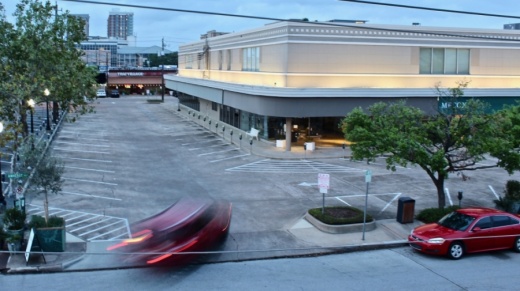Even longtime owners with loyal followings are feeling the strain.
“For small businesses like us, it hurts really bad. We just moved from our old location where we were for the past 15 years,” said chef Srifah “Fah” Vorarittinapa, owner of Lemongrass Cafe in Bellaire. “To get hit like this after not being open very long just hurts.”
The Texas Restaurant Association has warned long-term closures could result in 1 million jobs lost across the industry.
“The closing of the dining rooms and all the implications of that has been devastating. We’re a social industry,” said Melissa Stewart, executive director of the Greater Houston Restaurant Association, the regional affiliate of the TRA.
Some restaurants have announced they were closing temporarily, with an unclear outlook as to when they could be fully reopened.
“Even if today they said, ‘OK everything’s back to normal,’ I don’t think I’d be able to hire back all the same employees,” said Justin Turner, owner of Bernie’s Burger Bus, which had to temporarily close three of its four locations—he kept his first location in Bellaire open—and furlough 100 employees. “I’d also have to still figure out how to get cash for groceries and supplies. It would take some time.”
Until then, business owners are adapting and hoping for lifeline from neighbors and lawmakers alike.
Creative survival
Lemongrass owner chef Fah first started noticing a slowdown even before major event cancellations and health declarations started coming the week of March 11, as public awareness and fear started to build.
““I feel like people don’t want to go out,” Fah said.
The sudden shutter was particularly challenging for Meyerland-area Fainmous BBQ, which set to open its new location across town in April.
“This literally caught us at a crazy time, but we just try and be very optimistic,” co-owner Karen Fain said. “When this is done, we’ll be ready and tooled up. ... We’ll get through this.”
When restaurants were forced to close their dining rooms, owners like Fah, Fain and others had to ramp up their to-go and catering offerings.
“Take-out is fine and works for some, but not everyone,” Stewart said. “If you’re a drive-thru or already have a healthy to-go business, you might be OK.”
With grocery stores struggling to keep up with an anxious public, restaurateurs also saw an opportunity to become neighborhood markets. Local Foods in Rice Village and Bernie’s Burger Bus in Bellaire have both put baked goods, produce, and other groceries up for sale, with Turner’s approach being a “name your price” fundraiser to help his staff.
“Every dollar you put into Bernie’s right now is going into an account for payroll. No matter what, I will make sure my people get paid,” he said.
Because restaurants have access to different distributors and local farms, they have been able to tap into products that might fly off store shelves as well as hard-to-find menu ingredients.
“From the start this has been what Local Foods has been about, showcasing those local providers,” co-owner Benjy Levitt said. He said his market concept could return even after the outbreak.
For other retailers, the stay-at-home order forced many to close if they had not already done so, including nearly every shop in the Rice Village. The British Isles, in business for nearly 30 years, was able to remain open because it serves as a small grocer, but owner Guy Streatfeild eventually closed his store to only curbside pickup and delivery orders.
“We’re balancing the needs of the people, the needs of staying in business, just finding the balance in it all,” he said.
Recovery mode
Business owners are eager to start tapping into federal programs and local resources to help them survive and recover.
“The reality is, there’s not going to be one path to a solution,” Stewart said. “It’s going to be a loan, it’s going to be incentives, some rent abatement here and there, and federal help.”
The Small Business Development Center, an extension of the federal Small Business Administration, is recommending that all small businesses, including restaurants, apply for federal economic injury loans regardless of whether they are committed to borrowing through the new federal program, which does have provisions for debt forgiveness.
“In order to get any kind of relief, whether it is a loan or whatever undisclosed relief, such as grants, down the road, you have to be in that queue,” said Steven Lawrence, executive director of the SBDC’s Houston district office.
Prior to the new federal program, an application can expect to receive a response within a week and funds within four weeks.
“The problem is most small businesses need cash right now, and we’re struggling to get that quick cash to them,” he said.




